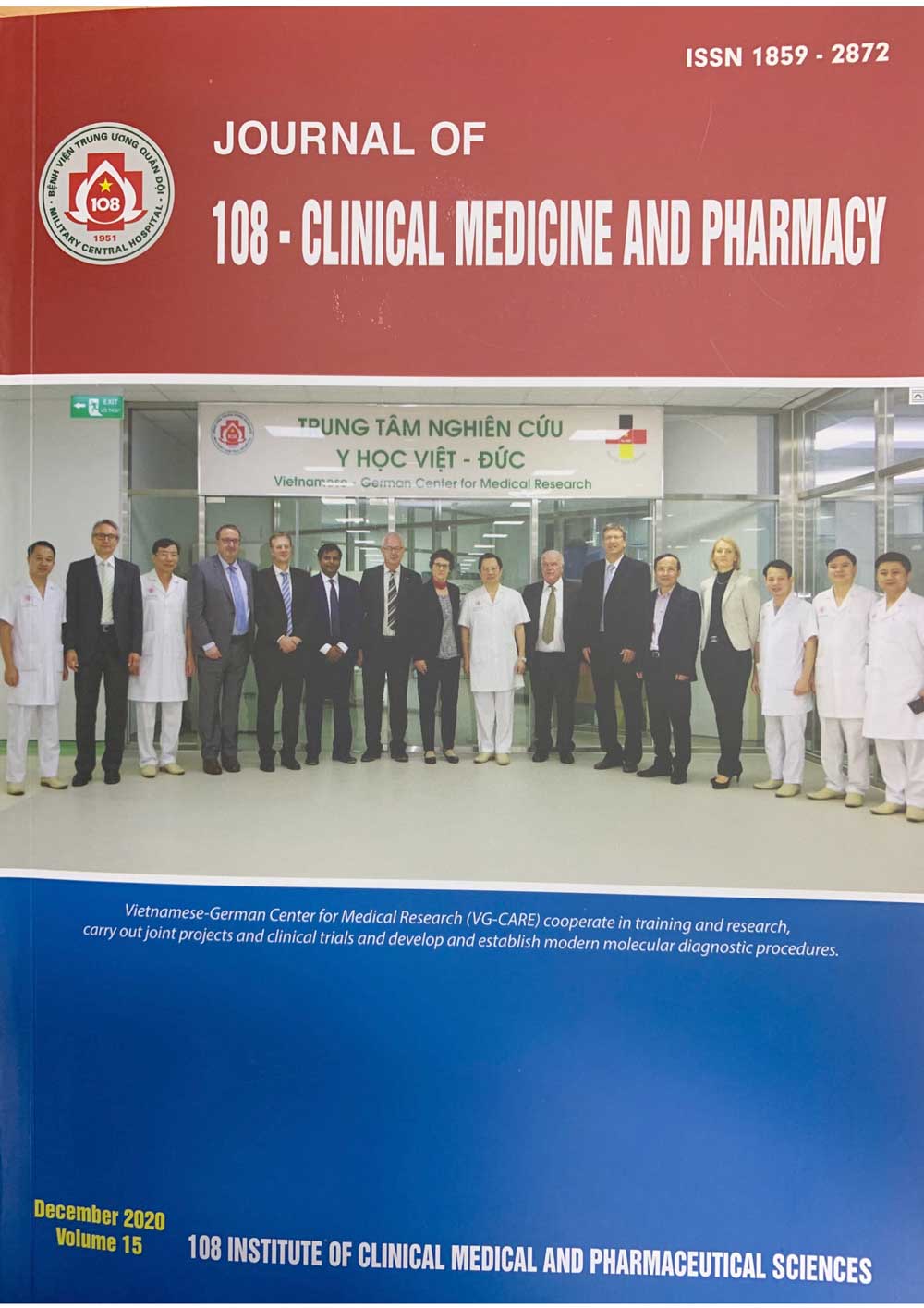Association of ESBL and CTX-M gene with the clinical outcome of patients suffer from bloodstream infections caused by Escherichia coli and Klebsiella pneumoniae
Main Article Content
Keywords
Tóm tắt
Objective: To evaluate the value of CTX-M on the clinical outcome of bloodstream infection (BSI) patients caused by E. coli and K. pneumoniae. Subject and method: A total of 165 BSI patients were treated at 108 Military Central Hospital from Oct. 2014 to May 2016, including 115 cases caused by E. coli and 50 cases caused by K. pneumoniae. All strains were identified and performed antibiotic susceptible test by Vitek II system (Bio-Merieux, USA). CTX-M gene encoding ESBL was screened using polymerase chain reaction method. Result: In total, the percentage of ESBLs producing strains was 47.3% and CTX-M was detected in 62.4% (103/165) all of strains. We observed that there was not significant difference with the clinical outcome between BSI patients caused by CTX-M positive strains (septic shock 22.3% and fatality 21.4%) and BSI patients caused by cephalosporin resistant strains (17.9% - 22.5% with shock and 17.9% - 22.5% with fatality). However, when we analyzed the subgroup of BSI patients caused by cephalosporin susceptible strains. The proportion of shock and fatality in groups with CTX-M positive were higher than that in group with CTX-M negative (21.6% - 33.3% vs 14.6% - 19.2% with shock and 18.9% - 26.7% vs 10.4 - 15.4% with fatality). Additionally, the length of hospital stay in groups with CTX-M positive were significant longer than that in group with CTX-M negative. Conclusion: Our data showed a high prevalence of ESBL producing strains causing BSI patients, and also high prevalence of CTX-M positive strains. Moreover, in BSIs caused by cephalosporin susceptible strains, the clinical outcome of group with CTX-M positive were worse than that of group with CTX-M negative.
Article Details
Các tài liệu tham khảo
2. Morrissey IM, Hackel RB et al (2013) A review of ten years of the study for monitoring antimicrobial resistance trends (SMART) from 2002 to 2011. Pharmaceuticals 6(11): 1335-1346.
3. D'Andrea MM, Arena F, Pallecchi L et al (2013) CTX-M
 ISSN: 1859 - 2872
ISSN: 1859 - 2872
